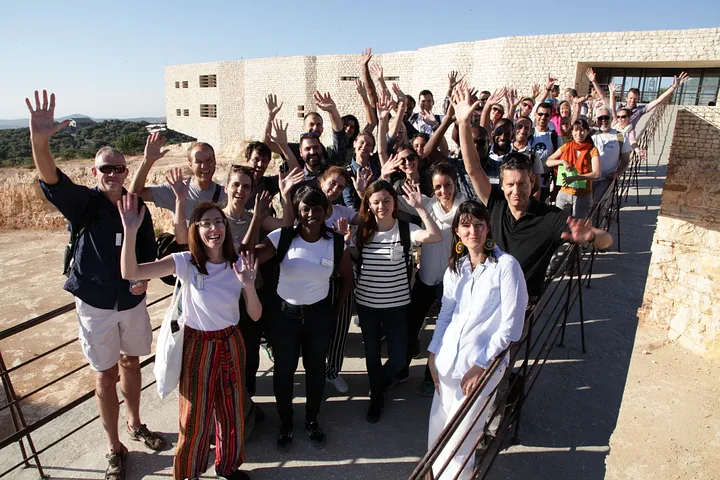
When the MAVA Leaders for Nature Academy was launched in March 2018, the MAVA Foundation was keen to develop a strong conservation community. They wanted to build institutional resilience within the sector by developing intergenerational leaders, who would continue to champion sustainable and impactful conservation, long after MAVA’s closing.
The Academy follows a dual approach — led by Common Purpose and Mowgli Mentoring — that incorporates different elements of leadership development such as 360 feedback, online learning, face to face and/ or online events, coaching, and mentoring. This design promoted collaboration and exchange of knowledge between young and senior professionals.
When organisations talk of leadership development, employee engagement and retention, practices such as mentoring and coaching are introduced either as complementary or independent approaches. Mentoring is centered on holistic development incorporating both skill and mindset development to meet the mentee’s personal and professional goals.
Mentoring is a shoulder-to-shoulder relationship with a more experienced guide to develop one’s leadership, thought process, decision-making capabilities and provide the necessary confidence to accelerate personal and professional development. If you get the opportunity to get a mentor, jump at it!
Within the Academy, we’ve seen mentoring and coaching complement each other to accelerate learning and as a result, shape organisational culture and bridge engagement gaps within some of the MAVA partner organisations engaged in this programme.
The nature leaders share that with the support of mentoring, they’ve been able to:
1/ Address internal interferences such as lack of confidence within young leaders, many of whom are now more assertive and better at decision making; qualities that are vital in leadership.
I have gained confidence and now deal with difficult situations more decisively. I am more comfortable engaging with senior managers and our partner organisations, and now have the confidence to approach industry leaders, market our unit to them and influence their practice and the industry as a whole. — Sboniso Phakathi, Rural Initiatives for a Sustainable Environment, Southern Africa Wildlife College
2/ Promote personal and professional growth: various studies show that lack of opportunities for learning and improving performance is one of the main reasons for high employee turnover within millennials — more so than low pay. Mentoring which focuses on personal and professional growth, can therefore enable leaders and managers to discover and leverage the right talents and potential across all levels of the company hierarchy, increasing their leadership readiness. When a young leader is mentored, he/she is able to see situations from a different perspective and develop their mindset, creativity, problem-solving and agility skills as well as behaviours. Similarly, mentors get to develop skills that not only enable them to support others, but refine their leadership skills.
I’m very happy that I trusted the process. It helped me detect and develop a skill that is very necessary for my professional and personal development. — Joan Marc Simon, Zero Waste Europe
3/ Encourage self-reflection and deeper thinking: mentors also work to integrate the different strands of a mentee’s life to ensure that they are truly able to achieve prosperity as the mentee envisions it. To achieve this, emotional and self-awareness are a critical component of mentoring, and mentors within the MAVA Leaders for Nature Academy are introduced to tools that enhance their active listening and powerful questioning techniques, to prompt self-reflection and a deeper level of thinking within their mentees.
Mentoring was beneficial because it allowed me to take some time for self-reflection and understand my own functioning. I understand better why I work a certain way and where my fears come from. I now have a basis that allows me to face more important obstacles. — Melanie Annen, Jorat, une terre a vivre au quotidien
4/ Support the adoption of new mindsets and behaviours: beyond offering encouragement and inspiration, part of what a good mentor does is act as a mirror enabling the mentee to realise actions, beliefs and thoughts that may be holding them back.
I am part of 2 teams at the professional level and it has always been difficult for me to find a balance. I am more successful at doing this now and can express my thoughts in the team better, using the right form. I feel more attention is paid to what I have to say. — Julia Nerfin, WWF Suisse
“We have seen some powerful relationships developing between the senior and young professionals; senior leaders have learnt the power of listening, and how to help others to find the solution rather than just give it to them, while the young leaders have grown in confidence and have gained a greater sense of direction.” Nathalie Cadot, Manager in the Impact and Sustainability team, MAVA Foundation